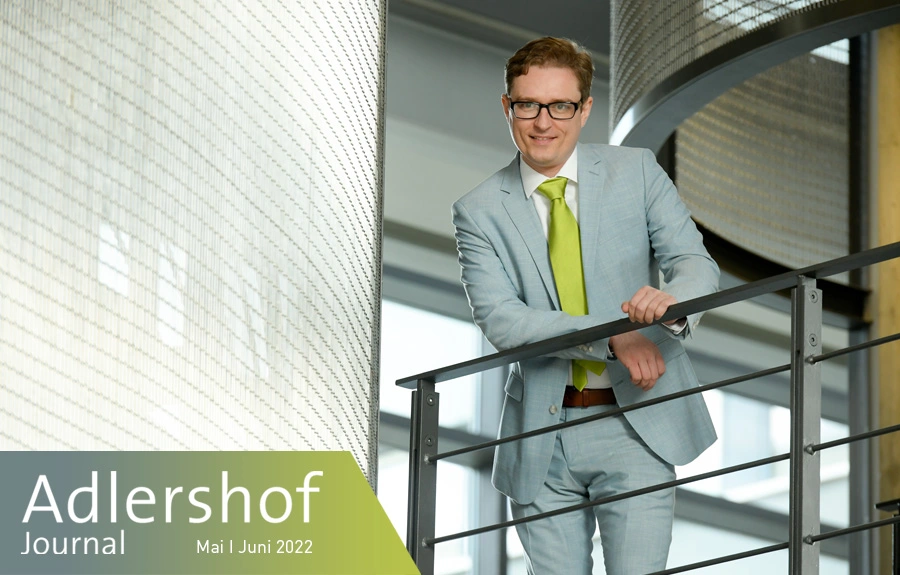Founder, not professor
Ingenious synthesis by GenoSynth
When things get really complicated and customer from the chemical and pharmaceutical industry need synthesis of highly complex molecules or optimisation of elaborate processes, GenoSynth offers tailored solutions. Founder Anton Khartulyari is already thinking ahead.
“Even when I was at school, I was always dealing with chemistry,” says Anton Khartulyari. He wasn’t quite the right fit for his school, with its focus on music. He preferred taking part in the chemistry olympics instead. Consequently, he moved on to study chemistry after graduating from high school. He wanted to become a chemistry professor. His PhD led him to the renowned University of Pennsylvania in the US. Upon his return to Tübingen, he began working towards becoming a university professor. For the second time, he realised: It’s just not the right fit.
So, instead, Khartulyari drew up a business concept, spoke to funders, and announced to his extensive network that he would found a business: GenoSynth GmbH. After looking for a suitable space with ample lab space that adhered to the legal regulation for chemical laboratories, he landed in Adlershof in 2018. “I checked it out on Google Earth and had this outdated image in my head of an area with only a few buildings,” he remembers. Upon his arrival, he found vibrant campus life, modern buildings, and knew: “It’s the right fit.”
Today, GenoSynth has nine employees. Two of them are old friends from university who have been with him since day one and share Khartulyari’s passion for tackling real challenges in science and process technology. “Our focus is on organic chemistry,” the founder explains. His customers include chemical and pharmaceutical companies, biotech start-ups, and research and development departments from various industries, ranging from display, glasses, and furniture manufacturers to producers of shoe polish. They turn to GenoSynth when it comes to finding pathways to industrial-scale synthesis of highly complex molecules or to optimising complicated process chains.
The team is currently also involved in a research project with a team of nephrologists led by Philipp Enghard from Charité Berlin. They are pushing the development of a diagnostic kit that will enable laboratories to detect inflammatory and chronic kidney disease using urine samples, a process that previously required biopsies. They have already identified the appropriate biomarkers. The aim now is to make these test kits available on a larger scale and to develop the efficient manufacturing processes needed to do so. “One in ten people have kidney disease, which, in many cases, go unnoticed,” Khartulyari explains. The new test procedure is intended to change this and can also be used as an addition to therapy. There’s a huge market to be had.
Even beyond that, GenoSynth is on the path to success. “For us, the pandemic has had rather a positive effect,” he reports. Companies whose global process and supply chains have come to a standstill approached the Adlershof-based company looking for new, local partners. For months, the lab has been working at full capacity. “It's challenging, but it’s exactly what I always wanted,” Khartulyari says. This is why he spent his time poring over chemistry books instead of practicing the violin. He already has further plans. The lab space is stretched to its limits. New devices are being added. “We are planning to build,” he confides. In Adlershof. Because of his problems finding suitable lab space when he was founding his company, he is thinking big: The building will be a place where start-ups and small chemical companies can rent office and lab spaces. Listening to Khartulyari, one thing is clear: This is a real entrepreneur.
Peter Trechow for Adlershof Journal
